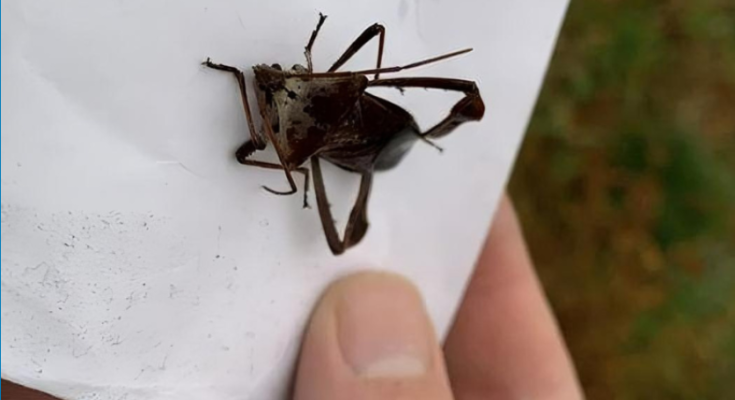Summertime is all about sunshine, barbecues, and enjoying the great outdoors. But lurking in the shadows, often unnoticed, is a silent threat: the assassin bug. These creepy crawlies, sometimes called “kissing bugs,” are more than just a nuisance; they can pose serious health risks.
Assassin bugs are blood-feeding insects, similar to mosquitoes and ticks. They feed on the blood of humans and animals, often leaving their mark near the mouth, hence the nickname “kissing bugs.” The real danger comes after they feed. They often defecate at the bite site, and their feces can contain a parasite called Trypanosoma cruzi. This parasite is the culprit behind Chagas disease, a potentially deadly illness.

Chagas disease, caused by the Trypanosoma cruzi parasite, can have a devastating impact on your health. While the initial symptoms are often mild, such as fever, headache, and fatigue, the disease can progress silently, leading to serious long-term complications. These complications can affect the heart, digestive system, and even the nervous system. In severe cases, Chagas disease can be fatal.
As the climate changes, experts are seeing a concerning trend: assassin bugs are spreading to new areas, including those that were previously considered safe. This expansion of their territory is a cause for concern, as it increases the risk of exposure to Chagas disease.
Assassin bugs are found in many parts of the United States, with a higher concentration in the Southern states. They prefer to live in warm, humid environments and can be found in gardens, under porches, and even inside homes.
- Keep your yard clean: Regularly remove debris, such as fallen leaves, branches, and piles of wood. This will eliminate potential hiding places for assassin bugs.
- Seal cracks and crevices: Inspect your home for any cracks or gaps in the foundation, walls, or windows. Seal them to prevent assassin bugs from entering.
- Use screens: Make sure your windows and doors have tightly fitted screens to keep assassin bugs out.
- Keep lights off at night: Assassin bugs are attracted to light, so try to keep your outdoor lights off at night.

Early detection is crucial for successful treatment of Chagas disease. While many infected individuals may not experience any symptoms, others may experience a range of symptoms, including:
- Fever
- Headache
- Fatigue
- Rash
- Swollen lymph nodes
- Muscle aches
- Nausea and vomiting
If you suspect you have been bitten by an assassin bug, it is important to seek medical attention immediately. A blood test can help diagnose Chagas disease, and early treatment can significantly reduce the risk of long-term complications.
The presence of assassin bugs shouldn’t make us afraid to enjoy the outdoors. Instead, it should encourage us to be vigilant and aware. By understanding the risks associated with these bugs, we can take steps to protect ourselves, our families, and our pets.

Here are some tips for staying safe:
- Be aware of your surroundings: When spending time outdoors, pay attention to your surroundings and look out for assassin bugs.
- Wear protective clothing: When working in areas where assassin bugs are common, wear long pants, long-sleeved shirts, and closed-toe shoes.
- Use insect repellent: Apply insect repellent containing DEET to exposed skin and clothing.
- Inspect your clothing and belongings: Before coming indoors, inspect your clothing and belongings for any assassin bugs.
Assassin bugs are a growing threat, but with knowledge and vigilance, we can protect ourselves and our loved ones from the dangers of Chagas disease. By understanding their habits, taking preventive measures, and seeking prompt medical attention if bitten, we can enjoy the summertime without fear.

